 W
WAiud Prison is a prison complex in Aiud, Alba County, located in central Transylvania, Romania. It is infamous for the treatment of its political inmates, especially during World War II under the rule of Ion Antonescu, and later under the Communist regime.
 W
WEmil Bodnăraș was a Romanian communist politician, an army officer, and a Soviet agent, who had considerable influence in Socialist Republic of Romania.
 W
WSzilárd Ignác Bogdánffy was a Roman Catholic auxiliary bishop of Satu Mare and Oradea of the Latins. On 30 October 2010 he was proclaimed blessed in a ceremony held in the Cathedral Basilica of St. Mary, Oradea, Romania, being recognized as a martyr of the Communist period.
 W
WTraian Brăileanu or Brăilean was an Austro-Hungarian-born Romanian sociologist and politician. A native of the Bukovina region, he attended Czernowitz University, where he studied philosophy and classical languages, subsequently earning a doctorate. Ending up as a translator in Vienna, he fought for Austria during World War I. At the conclusion of hostilities, returned to the renamed Cernăuți, now part of Greater Romania. There, he soon became a professor of sociology, leading a "Cernăuți School" of academics during the interwar period.
 W
WIon Caraion was a Romanian poet, essayist and translator.
 W
WAlexandru Claudian was a Romanian sociologist, political figure, and poet. A student and practitioner of Marxism, he worked as a schoolteacher, entry-level academic, field researcher, and journalist, before finally earning a professorship at Iași University. An anti-fascist, Claudian enlisted with the Romanian Social Democratic Party during the interwar, moving closer to the anti-communist center by the late 1940s, and became that faction's main theoretician. His condemnation of Marxism and totalitarianism made him an enemy of the communist regime, which imprisoned him for several years and kept him under surveillance until the time of his death.
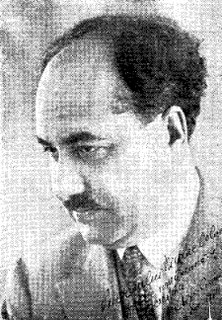 W
WNichifor Crainic was a Romanian writer, editor, philosopher, poet and theologian famed for his traditionalist activities. Crainic was also a professor of theology at the Bucharest Theological Seminary and the Chișinău Faculty of Theology. He was an important racist ideologue, and a far-right politician. He was one of the main Romanian fascist and antisemite ideologues.
 W
WSergiu Dan was a Romanian novelist, journalist, Holocaust survivor and political prisoner of the communist regime. Dan, the friend and collaborator of Romulus Dianu, was noted during the interwar period as a contributor to Romania's avant-garde and modernist scene, collaborating with poet Ion Vinea on Contimporanul review and Facla newspaper. He was also affiliated with the rival literary club, Sburătorul, and noted for criticizing the communist sympathies of other avant-garde writers. His main works of the 1930s include contributions to the psychological novel, thriller and political novel genres, received with critical acclaim.
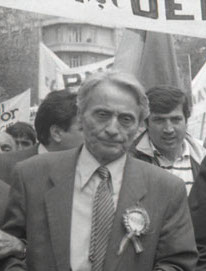 W
WIon Diaconescu was a Romanian anti-Communist activist and politician. He was imprisoned as a political prisoner for seventeen years from 1947 to 1964 during Romania's Communist era. Diaconescu later became a leader of the Christian Democratic National Peasants' Party (PNŢ-CD).
 W
WIoan Dumitrache was a Romanian major general during World War II, in command of the 2nd Mountain Division. His troops were recognized as the elite troops of the Romanian Army throughout the campaign on the Eastern Front. He was a recipient of the Knight's Cross of the Iron Cross of Nazi Germany, awarded to him for capturing Nalchik on November 2, 1942.
 W
WIlarion V. Felea was a priest and theologian of the Romanian Orthodox Church.
 W
WRadu Filipescu is a former Romanian anti-Communist dissident.
 W
WGheorghe Flondor was Romanian politician who served as Royal Resident of Ținutul Suceava from February 7, 1939 to September 23, 1940.
 W
WValeriu Gafencu was a Legionnaire who was active during the Legionary Rebellion. Arrested by the state authorities in 1941, he died 11 years later at Târgu Ocna Prison.
 W
WConstantin Gane was a Romanian novelist, amateur historian, biographer and memoirist. Born into the boyar aristocracy of Western Moldavia, he worked as a lawyer in Bucharest, achieving literary notoriety with his recollections from the Second Balkan War and the Romanian front of World War I. By the 1930s, he was primarily a writer on historical and genealogical topics, famous for his contribution to women's history. An apologist for Romanian conservatism and Junimism, Gane also completed in 1936 a biography of Petre P. Carp. He was editor at Convorbiri Literare and a columnist for Cuvântul, also putting out his own magazine, Sânziana.
 W
WVictor Gomoiu was a Romanian surgeon, anatomist, folklorist and medical historian, who served as Minister of Health and Social Protection in 1940. Noted before 1910 for his work in descriptive surgery and pathology, focusing on the treatment of tuberculosis, genital diseases and tumors, he soon became one of the main contributors to medical historiography and bibliography. He founded several hospitals and edited medical journals, setting up a collection of medical instruments which became the basis of a national museum in Craiova. He became a professor at the University of Bucharest, an expert for the League of Nations, and, after distinguished service in World War I, a recipient of the Legion of Honor; additionally, he served for 22 years as president of the International Society for the History of Medicine, of which his wife Viorica was also an active member.
 W
WRadu Gyr was a Romanian poet, essayist, playwright and journalist.
 W
WPantelimon "Pan" Halippa was a Bessarabian and later Romanian journalist and politician. One of the most important promoters of Romanian nationalism in Bessarabia and of this province's union with Romania, he was president of Sfatul Țării, which voted union in 1918. He then occupied ministerial posts in several governments, following which he underwent political persecution at the hands of the Communist régime and was later incarcerated in Sighet prison.
 W
WIon Ioanid was a Romanian dissident and writer. Ioanid was a political prisoner of the communist-led regime after the Second World War and spent 12 years in prison and labour camps. He is best known for taking part at the 1953 Cavnic labor camp escape and for his book "Give us each day our daily prison", a reference to the verse from the Christian Lord's Prayer. The book is a comprehensive recollection of his time spent in detention. He is considered a Romanian Solzhenitsyn, as his description of the communist detention regime in Romania is the most detailed one submitted by one of its victims.
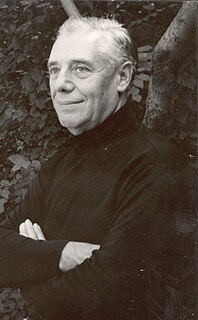 W
WGeorge Ivașcu was a Romanian journalist, literary critic, and communist militant. From beginnings as a University of Iași philologist and librarian, he was drawn into left-wing antifascist politics, while earning accolades as a newspaper editor and foreign-affairs journalist. Openly confronting the Iron Guard and fascism in general, he was persecuted and went into hiding during the first two years of World War II. He reemerged as a pseudonymous correspondent, then editorial secretary, of the magazine Vremea, slowly turning it away from fascism. In parallel, he also contributed to the clandestine left-wing press, preparing for an Allied victory.
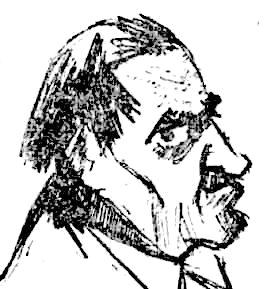 W
WRadu D. Lecca was a Romanian spy, journalist, civil servant and convicted war criminal. A World War I veteran who served a prison term for espionage in France during the early 1930s, he was a noted supporter of antisemitic concepts and, after 1933, an agent of influence for Nazi Germany. While becoming a double agent for Romania's Special Intelligence Service (SSI), Lecca was involved in fascist politics, gained in importance during World War II and the successive dictatorships, and eventually grew close to Conducător Ion Antonescu.
 W
WVasile Luca was an Austro-Hungarian-born Romanian and Soviet communist politician, a leading member of the Romanian Communist Party (PCR) from 1945 and until his imprisonment in the 1950s. Noted for his activities in the Ukrainian SSR in 1940–1941, he sided with Ana Pauker during World War II, and returned to Romania to serve as the minister of finance and one of the most recognizable leaders of the Communist regime. Luca's downfall, coming at the end of a conflict with Gheorghe Gheorghiu-Dej, signaled that of Pauker.
 W
WHoria Macellariu was a Romanian rear admiral, commander of the Royal Romanian Navy's Black Sea Fleet during the Second World War.
 W
WNicolae Macici was a Romanian lieutenant general during World War II, when he commanded the Romanian First Army, first on the side of the Axis (1941–1944) and then on the side of the Allies (1944–1945). Convicted in 1945 by the Bucharest People's Tribunal as a war criminal for his role in the Odessa massacre, he died at Aiud Prison five years later.
 W
WGheorghe Manoliu was a Romanian major general during World War II.
 W
WConstantin D. Nicolescu was a Romanian career army officer, and Minister of Defense in July–September 1940.
 W
WGherman V. Pântea was a Bessarabian-born soldier, civil servant and political figure, active in the Russian Empire and Romania. As an officer of the Imperial Russian Army during most of World War I, he helped organize the committees of Bessarabian soldiers, oscillating between loyalty to the Russian Provisional Government and the cause of Bessarabian emancipation. Pântea was subsequently Military Director of the Moldavian Democratic Republic, answering to President Ion Inculeț. He personally created a Bessarabian defense force, tasked with combating Bolshevik subversion and Russian intimidation, but also braced for defeat after the October Revolution.
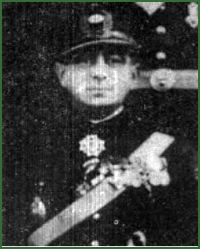 W
WConstantin Petrovicescu was a Romanian soldier and politician, who served as Interior Minister from September 14, 1940 to January 21, 1941 during the National Legionary State.
 W
WDumitru Stăniloae was a Romanian Orthodox Christian priest, theologian and professor. He worked for over 45 years on a comprehensive Romanian translation of the Greek Philokalia, a collection of writings on prayer by the Church Fathers, together with the hieromonk, Arsenie Boca, who did brought manuscripts from Mount Athos. His book, The Dogmatic Orthodox Theology (1978), made him one of the best-known Christian theologians of the second half of the 20th century. He also produced commentaries on earlier Christian thinkers, such as St Gregory of Nyssa, Saint Maximus the Confessor, and St Athanasius of Alexandria. He is also remembered as editor in chief of the regional orthodox newspaper Telegraful Român where he imposed a nationalist and antisemitic editorial line.
 W
WNicolae Steinhardt was a Romanian writer, Orthodox monk and lawyer. His main book, Jurnalul Fericirii, is regarded as a major text of 20th century Romanian literature and a prime example of Eastern European anti-Communist literature.
 W
WPăstorel Teodoreanu, or just Păstorel, was a Romanian humorist, poet and gastronome, the brother of novelist Ionel Teodoreanu and brother in law of writer Ștefana Velisar Teodoreanu. He worked in many genres, but is best remembered for his parody texts and his epigrams, and less so for his Symbolist verse. His roots planted in the regional culture of Western Moldavia, which became his main source of literary inspiration, Păstorel was at once an opinionated columnist, famous wine-drinking bohemian, and decorated war hero. He worked with the influential literary magazines of the 1920s, moving between Gândirea and Viața Românească, and cultivated complex relationships with literary opinion-makers such as George Călinescu.
 W
WSandu Tudor was a Romanian poet, journalist, theologian and Orthodox monk. Having had an adventurous youth, he first became known in the late 1920s, when he contributed to the modern Orthodox revival, rallying with the journal Gândirea. Although a traditionalist and a critic of materialism, he was closely associated with the modernist scene, and generally supported left-wing causes. Tudor was also a scandal-prone journalist and newspaper owner, who faced accusations of slander and was avoided by his peers.
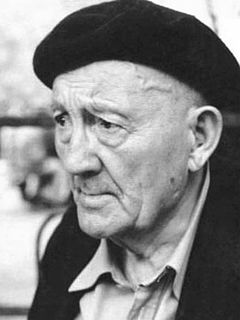 W
WPetre Țuțea was a Romanian philosopher, journalist, and economist.
 W
WȘtefana Velisar Teodoreanu was a Romanian novelist, poet and translator, wife of the writer Ionel Teodoreanu. Encouraged to write by her husband, she was a late representative of Poporanist traditionalism, which she infused with moral themes from Romanian Orthodoxy, and also with echos of modernist literature. Her works of youth, coinciding with World War II, comprise mainly novels centered on the internal conflicts and moral triumphs of provincial women such as herself. Forming a counterpart to her husband's own books, they won praise in their day, but were later criticized for being idyllic and didactic.
 W
WMircea Aurel Vulcănescu was a Romanian philosopher, economist, ethics teacher, sociologist and far-right politician. Undersecretary at the Ministry of Finance from 1941 to 1944 in the Nazi-aligned government of Ion Antonescu, he was arrested in 1946 and convicted as a war criminal.